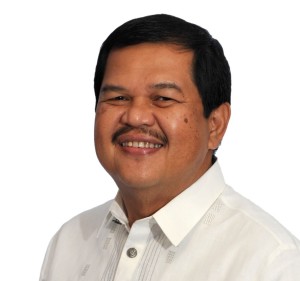Selection of ‘insider’ to head BSP hailed
Economists cheered Pres. Rodrigo Duterte’s decision to appoint an insider to head the Bangko Sentral ng Pilipinas (BSP) especially at this time that banking and monetary regulators face an increasingly challenging global environment.
BSP Deputy Governor Nestor Espenilla Jr., a career central banker who heads the banking supervision and examination sector, has been chosen to succeed Amando Tetangco Jr. whose term will end this July.
“We think this is market positive and augers well for the economy. It also confirms what we have always said, that in matters concerning the economy, the President listens to his economic team led by Finance Secretary Carlos Dominguez,” said Romeo Bernardo, an economist at New York-based think tank Global Source.
ING Bank Manila senior economist Joey Cuyegkeng said the appointment of Espenilla was “a choice for continuity of monetary and financial system’s policies and the direction of these.”
“The appointment also demonstrates the President’s confidence with and trust on his economic team. The decision also displays the strong influence of his economic team, especially Finance Secretary Dominguez,” Cuyegkeng said.
If only the President would more vigorously support the economic reforms that are now with the legislature, the economist said more concerns would be eased, in turn strongly pushing the economy forward and financial markets higher.
With Espenilla next at the helm of BSP, Cuyegkeng said monetary policy was unlikely to change.
“Inflation-targeting would remain while the risk-related policy bias would continue. Soon-to-be BSP Governor Espenilla hardly talks about monetary policy publicly. He is BSP’s face on financial market regulation but he is still involved in shaping monetary policy especially when regulatory tweaks are needed to influence monetary policy,” Cuyegkeng said.
The economist expects Espenilla to continue safeguarding the banking system while implementing best practices to create a more efficient banking system.
He said “financial markets would receive a further boost while pushing for seamless mobility of funds among banks and the banking system and bank clients not only for basic banking services but for ease of fund transfer and investments.”
“Overall the decision is positive not only for the monetary system but for the economy – continuity and progress and display of President’s preference and disposition to economic expertise (and his economic team),” the economist said.
With the BSP increasingly facing difficulties to further beef up the country’s foreign reserves in a kind of environment when the US Federal Reserve was hiking interest rates, a much more challenging term awaits the next BSP governor.
Espenilla joined the BSP in 1981 and has worked in economic research, international operations as well as in the Office of the Governor. He rose from the ranks and was appointed deputy governor in 2005.
He earned a BS degree in Business Economics (magna cum laude) and an MBA from the University of the Philippines and obtained his MS in Policy Science from the Graduate Institute of Policy Science (GRIPS) in Tokyo, Japan.

